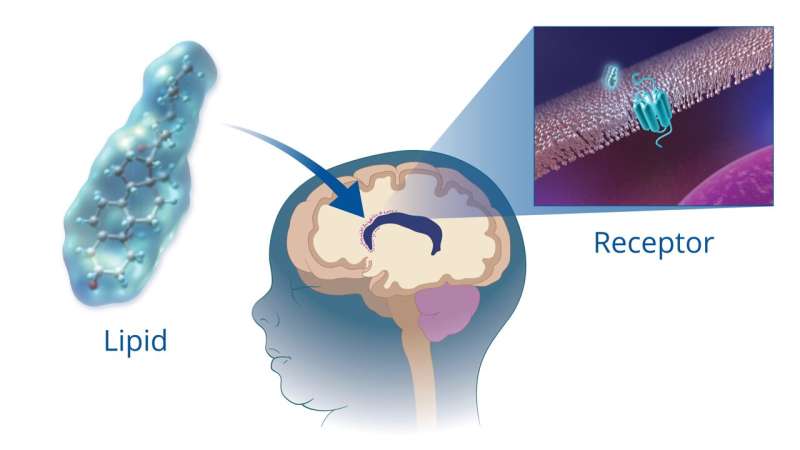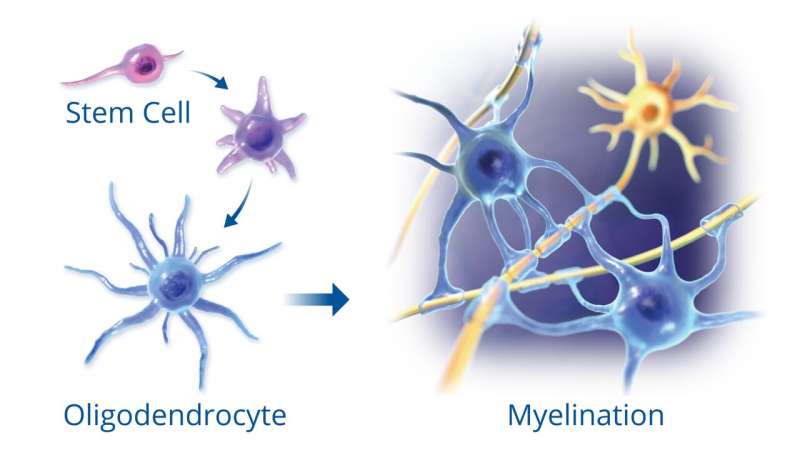This article has been reviewed according to Science X's editorial process and policies. Editors have highlighted the following attributes while ensuring the content's credibility:
fact-checked
peer-reviewed publication
trusted source
proofread
Newly identified lipid in breast milk might reduce cerebral palsy in infants

While it's known that the white matter loss will lead to neurological deficits, there is currently no treatment to help these infants avoid the outcome.
In experiments using neonatal mice, researchers at Duke Health have identified a fatty molecule in breast milk that triggers a process in which stem cells in the brain produce cells that create new white matter, reversing the injury.
The study appears Aug. 3 in the journal Cell Stem Cell. Eric Benner, M.D., Ph.D., is the study's corresponding author and is a distinguished assistant professor in the Department of Pediatrics at Duke University School of Medicine. Benner said further study in a clinical trial is needed, but the finding is promising.
"Developing therapies for children—especially such medically fragile children—is very difficult to do because there are justifiably strict safety concerns," Benner said. "The fact that this molecule is already found in something that is safe for premature babies—breast milk—is extremely encouraging.
"It's been known that fats in breast milk benefit a child's brain development, but there are many types of fats in breast milk," Benner said. "This work has identified a lipid molecule in breast milk that promotes white matter development. Now, we can begin to develop a therapy that isolates and delivers this lipid in a way that is safe for the unique challenges of these infants."
Benner is a neonatologist at Duke University and one of the co-founders of Tellus Therapeutics, a Duke spinout company developed with the help of the Duke University Office for Translation & Commercialization to bring this therapy from the bench into the neonatal intensive care unit.

The fatty molecule identified in the study will be administered intravenously to patients in an upcoming clinical trial. This is significant because many of the infants who are part of this vulnerable population also have gastrointestinal issues and cannot safely be given milk or medication by mouth.
The lipid molecule enters the brain and binds with stem cells there, encouraging the stem cells to become or produce a type of cell called oligodendrocytes.
The oligodendrocytes are like a hub that allow for the production of white matter in the central nervous system. This newly produced white matter in pre-term infants prevents the neurological damage that would otherwise impact the child's ability to move—the hallmarks of cerebral palsy.
"The timing of brain injury is extremely difficult to predict, thus a treatment that could be safely given to all preterm babies at risk would be revolutionary," said Agnes Chao, M.D., a former fellow in the Division of Neonatology and first author of the paper.
"As a neonatologist, I'm so excited that I may be able to offer a treatment to families with babies that are affected by preterm brain injury who would otherwise have no other options," Chao said.
More information: Eric J. Benner, 20-αHydroxycholesterol, an oxysterol in human breast milk, reverses mouse neonatal white matter injury through Gli-dependent oligodendrogenesis, Cell Stem Cell (2023). DOI: 10.1016/j.stem.2023.07.010. www.cell.com/cell-stem-cell/fu … 1934-5909(23)00255-2

















